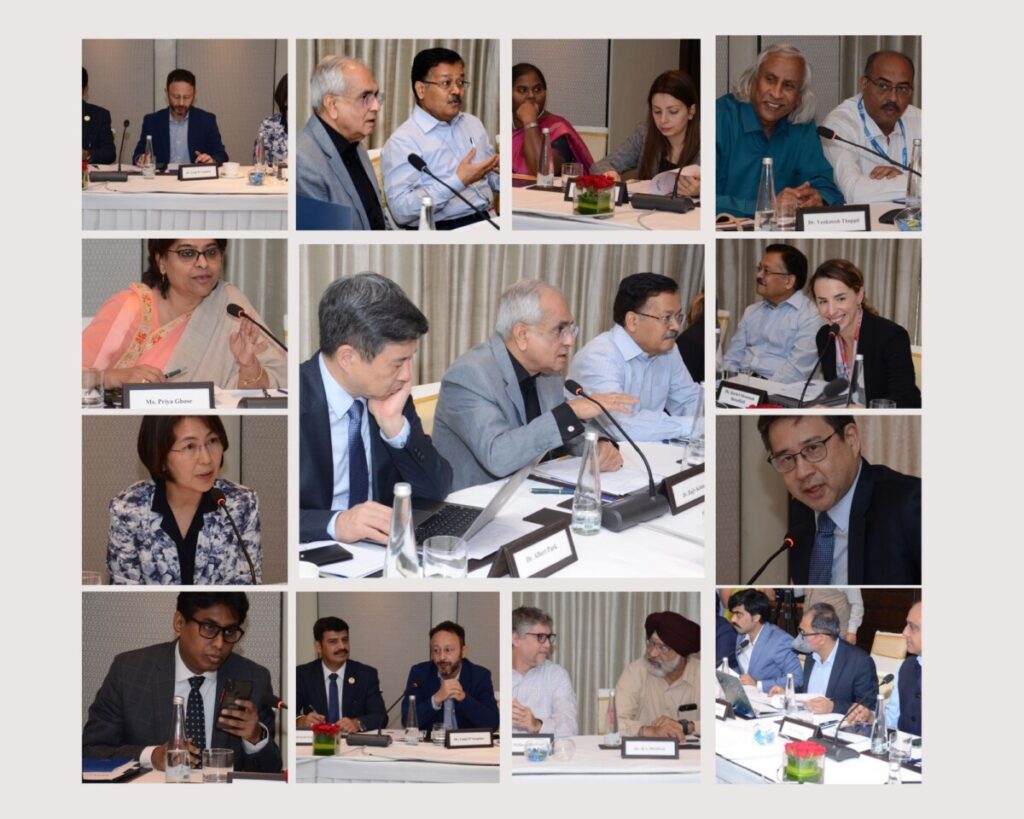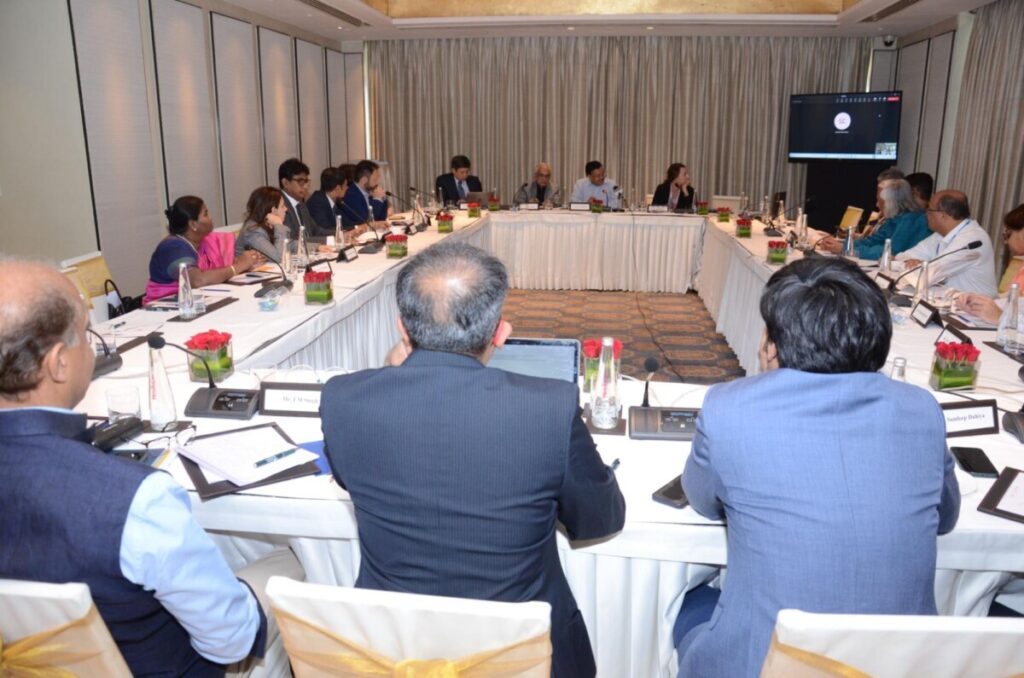This report is from Sandeep Dahiya, Pure Earth India’s Director of Advocacy and Communications.
A high-level roundtable, “A World Free of Lead Poisoning,” convened on Tuesday, 25th April 2023, in New Delhi, India, by the Center for Global Development, in partnership with Pahle India Foundation, Pure Earth, the Asian Development Bank and UNICEF, highlighted opportunities for the government of India to take a leadership role in the national and global fight against lead poisoning via its G20 Presidency.
With this single event, within a day, we were able to increase awareness about lead poisoning. News of our roundtable discussion reached approximately 47 million people worldwide with reports in prominent news outlets, including Dailyhunt, ThePrint, DeccanChronicle, ET Healthworld

This roundtable helped bring in credible national and international organizations and leaders to discuss and agree on the role of world leaders like India in solving the lead poisoning issue. After all, it is a matter that impacts more than 275 million Indian kids, around one-in-three children globally.
There is a large burden from lead poisoning that currently gets very little attention. Lead exposure can impact a child’s brain development, reduce IQ & cognitive function, and it has also been linked to higher levels of antisocial behaviour. The loss of intellectual capital, caused by widespread lead exposure, reduces the economic output of affected countries, suppressing their gross domestic product (GDP) and, thus, their national development trajectory.
The roundtable participants stressed the urgent need to initiate and strengthen lead pollution solutions, particularly for lead-adulterated spices, lead-laden paint, and unsound recycling of used lead-acid batteries.
In his remarks, Ministry of Health and Family Welfare Secretary Mr Rajesh Bhushan said that this is a problem at a huge scale, so the solutions also need to be designed and implemented at scale. He told the audience that the Government of India wanted to build awareness of lead poisoning using the network of 160,000 Ayushman Bharat health and wellness clinics operating across India, but those plans were pushed back because of the pandemic. Now, it is time to revisit the matter.
Dr Rajiv Kumar, Chair of the Pahle India Foundation and former Vice-Chairman of NITI Aayog said that lead poisoning is a serious threat to India’s health, education, environment and economic growth. He went further and said that the extent and impact of lead exposure on India deserves to become a Government of India Mission, similar to the Swachh Bharat, the nationwide effort to build toilets and improve waste management; or the white revolution for milk, the world’s biggest dairy development program implemented by India in the 1970s. A mission approach would also highlight India’s leadership to other countries that are similarly affected.
The roundtable also suggested the Government of India consider adding Lead (Pb) to the G20 agenda. Lead is currently a focus of the G7 agenda, with a workshop in November 2022 organized by the U.S., Germany, and the European Commission. Under the G20 presidency, India can now take the leadership role in accelerating lead solutions in G20 countries.
There was acknowledgement and some movement among changemakers, including the multinational and national organizations and the Indian government on this issue, but participants also felt the need to do more to build stakeholders, media knowledge and public buzz around this issue. Capacity building of healthcare and strengthening environmental assessment systems are two other critical areas that came up repeatedly in discussions.
“It was heartening to see the interest and intent of the Ministry of Health and participating organizations to do more; the interlinkages between lead poisoning, public health, children’s education, and economic growth seem to fit comfortably into the scope of work of major multilateral and national organizations. That gives us confidence that moving forward, we will see more commitments and strategic actions to solve this issue of lead poisoning,” said Dr. Subrata Dutta, Pure Earth India Country Director.

Special thanks to all participants for their valuable contributions, and their interest and enthusiasm for the roundtable.
A summary of the roundtable’s recommendations will be presented to the Ministry of Health and Family Welfare and the Prime Minister’s office. It will include a request for adding lead poisoning into the G20 agenda and for launching a national campaign to raise awareness and solve lead poisoning.



